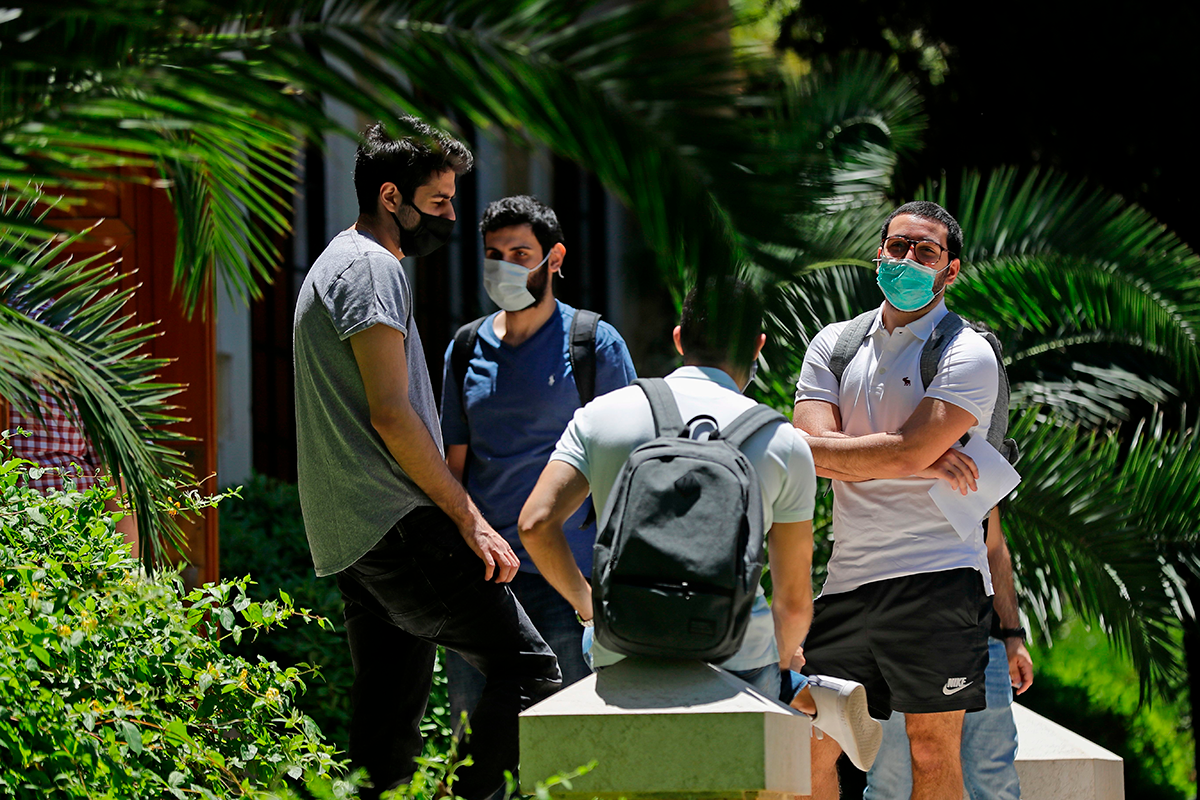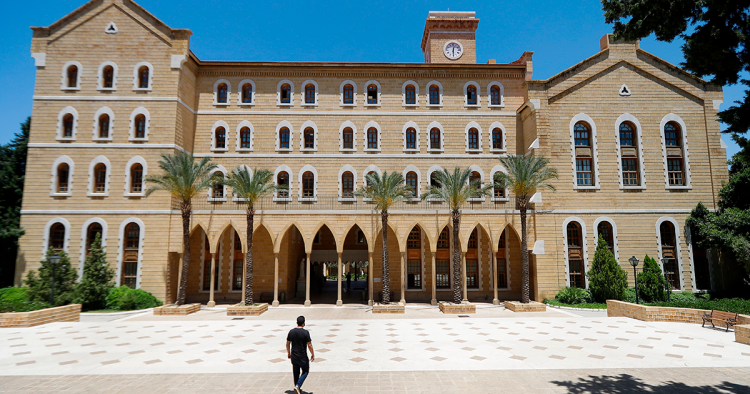This article is part of the publication Thinking MENA Futures, produced in conjunction with MEI's Strategic Foresight Initiative and the MEI Futures Forum. Read the other articles in the series here.
The world is changing and priorities are changing with it. The 2020 global pandemic has reshaped our evaluation of risks and rewards. The capacity of governments to manage crises and safeguard the well-being of populations has become the new metric by which citizens measure their success. The potential for global phenomena outside the management capacity of any governing institution to produce political and economic upheaval has become a reality.
Regardless of the future trajectory of COVID-19, whether it evolves into an ever more threatening pandemic or becomes a flu-like seasonal epidemic with marginal risk ameliorated with a vaccination, its rapid spread last year has raised popular awareness that global pandemics and public health emergencies are likely to be a permanent feature of our changing world. Similarly, global experiences with extreme weather phenomena, from unprecedented heat waves, to flooding, drought, and wildfires, have brought home the reality that climate change is no longer an over-the-horizon threat but a clear and present danger to populations now. A recently released report by the U.N. Intergovernmental Panel on Climate Change has reinforced the warning that climate impacts from human activity, if unaddressed urgently, will generate catastrophic effects before 2040.
The Middle East and North Africa (MENA) are not immune from any of these developing phenomena and, in some instances, they are at greater risk than other regions to their effects. The impact of drought and water scarcity, punishing temperatures, and rising sea levels will all stress regional governments and societies while conflicts, low levels of intra-regional cooperation, weak governing institutions, and dysfunctional societies inhibit effective response. Moreover, international measures to address global challenges, especially efforts to move away from fossil fuels and toward renewable energy sources, will challenge the ability of regional governments to adjust their strategies and put in place the policies needed to protect their societies and their populations while exacerbating regional tensions.
Regardless of these new forces, U.S. interests in promoting security and stability in a region that sits at the crossroads of international trade and commerce as well as the source of critical energy supplies will remain unchanged. Addressing population challenges, the youth bulge, and refugee and migration pressures from natural or man-made crises will require measures to promote sustainable economic growth and enhanced educational and health capacities. For U.S. policy-makers, then, the challenge of advancing U.S. interests in an increasingly fraught environment will be more difficult. But the U.S. will also bring assets to the table that could potentially enhance its role in the region and strengthen its position as the preeminent outside power.

In light of the shifting threat analysis, the U.S. should take a number of steps over the coming years to strengthen its position as the region’s leading international partner and in order to reduce the threat of regional catastrophe:
- Continue to shift the emphasis of U.S. engagement away from defense and security and more toward diplomatic efforts to resolve regional conflicts and promote regional cooperation. Emphasize initiatives to safeguard populations and provide economic security to minimize internal displacement, refugees, and migration.
- Engage with regional parties directly to develop regional approaches to address rising challenges. In line with regional structures in other parts of the world, for instance the Pan American Health Organization or the Indus Waters Treaty, the U.S. should encourage building and strengthening similar MENA regional initiatives, especially to address broad challenges like public health and climate change that no state on its own can resolve.
- Promote engagement by regional civil society organizations and educational institutions to enter cooperative arrangements supportive of governmental programs to address growing challenges.
- Focus development assistance programs in the region on building institutional capacity and helping to achieve resilient societies that can cope with internal challenges arising from global threats. Ensure that societies develop the social and economic mechanisms needed to reduce migration pressures.
- Participate in funding cooperative R&D initiatives to help regional partners develop the technologies needed to address growing challenges. Explore mechanisms to promote sharing of technologies and best practices internationally.
- Encourage the U.S. private sector to partner with regional counterparts to invest in resilient enterprises, particularly in such areas as food security and public health.
"The capacity of governments to manage crises and safeguard the well-being of populations has become the new metric by which citizens measure their success."
The MENA region, like much of the world, is entering a period that will test its capacity to adjust to rapid change stressing traditional political, economic, and social structures. Compounding the threat to the region, many of the states have been weakened by years or decades of internal strife, inadequate institutional capacity, unresponsive political and economic systems, and regional conflict. The U.S., which enjoys strong partnerships with the majority of states in the region, can play the leading role in assisting its partners to build the strong, resilient, and effective national and regional mechanisms that will be needed to overcome rising challenges. Conversely, collective failure to take adequate steps over the coming years will have global implications transcending the region itself. Public health collapse, conflicts engendered or exacerbated by environmental impacts, and political and economic failures will reverberate around the world. The U.S. must prioritize these issues as it builds its regional policies for the coming decades.
Gerald M. Feierstein is senior vice president at the Middle East Institute.
Photo by JOSEPH EID/AFP via Getty Images
The Middle East Institute (MEI) is an independent, non-partisan, non-for-profit, educational organization. It does not engage in advocacy and its scholars’ opinions are their own. MEI welcomes financial donations, but retains sole editorial control over its work and its publications reflect only the authors’ views. For a listing of MEI donors, please click here.













